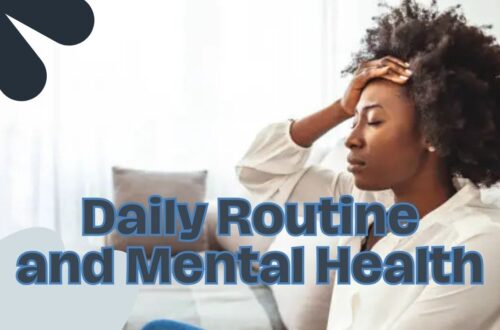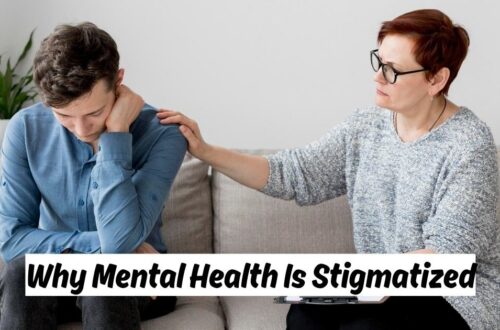We often take time to care for our bodies through exercise, healthy meals, or rest but forget that our minds also need nurturing. Ignoring mental health doesn’t just create stress, it prevents us from living fully. This is where insight mental wellness comes in. It’s more than stress management; it’s about understanding yourself on a deeper level, building resilience, and creating balance in everyday life.
What Does Insight Mental Wellness Mean?
Insight mental wellness is the practice of slowing down and looking inward. It’s about asking reflective questions like:
- Why am I feeling this emotion?
- What can I learn from this moment?
- Are my habits helping or harming my peace of mind?
This approach doesn’t push emotions aside it encourages you to face them with curiosity. Instead of trying to erase sadness, anger, or stress, you begin to understand their purpose. It’s like switching on a light in a dark room: what once felt overwhelming becomes manageable because you can see it clearly.
Why Insight Matters in Daily Life
When you ignore what’s happening inside, stress and frustration build up quietly until they affect everything from your relationships to your sleep. Practicing insight mental wellness helps you catch these issues early, before they turn into burnout.
With greater self-insight, you can:
- Recognize harmful thought patterns before they spiral.
- Understand your emotional triggers and respond more calmly.
- Strengthen relationships through empathy and awareness.
- Ask for support without guilt or shame.
- Reframe setbacks as opportunities for learning, not failures.
Core Elements of Insight Mental Wellness
Although everyone’s journey looks unique, several pillars support a strong mental foundation:
1. Self-Awareness
Noticing what’s happening in your inner world is the first step toward change. For example, realizing that staying up late impacts your mood the next day helps you adjust your habits.
2. Emotional Regulation
You can’t stop emotions from coming, but you can manage how you respond. Simple practices like breathing exercises, a mindful walk, or pausing before reacting can keep emotions from taking over.
3. Resilience
Resilience isn’t about pretending to be unshaken. It’s about recovering after life knocks you down. A resilient person sees setbacks as temporary obstacles, not permanent failures.
4. Caring for the Body
A tired or neglected body often creates a restless mind. Prioritizing sleep, nourishing meals, and physical movement supports both mental clarity and emotional balance.
5. Flexibility in Thinking
Rigid thinking limits growth. Developing mental flexibility allows you to see situations from multiple perspectives and adapt to change with ease.
Practical Ways to Practice Insight Mental Wellness
The beauty of this approach is that small, everyday habits are often the most powerful. You don’t need to change your entire lifestyle just start with little steps:
- Morning reflection: Begin the day by asking, “How do I feel right now?”
- Short mindful pauses: Take a minute to breathe deeply during busy hours.
- Daily journaling: Note one lesson or insight you gained from the day.
- Healthy boundaries: Protect your time and energy without guilt.
- Positive connections: Spend time with people who inspire and uplift you.
- Therapeutic support: Seek professional help when self-reflection isn’t enough.
Knowing When to Reach Out for Help
Insight is powerful, but it doesn’t reveal everything. Sometimes you need guidance to uncover deeper patterns. Therapists and counselors provide tools such as Cognitive Behavioral Therapy (CBT) or mindfulness practices that make emotional skills easier to apply.
Asking for help is not a weakness it’s an act of self-respect and strength.
Long-Term Benefits of Insight Mental Wellness
Over time, making this practice part of your life brings real transformation:
- Stress is noticed early and managed before it leads to exhaustion.
- Uncertainty feels less frightening and more manageable.
- Relationships improve because you communicate with greater empathy.
- Work and studies become more focused and meaningful.
- Life feels richer because you truly understand yourself.
A Compassionate Reminder
Practicing insight mental wellness isn’t about being perfect. You won’t always pause before reacting, remember to journal, or stay mindful in every moment and that’s okay.
The most important part is self-compassion. Saying to yourself, “I’m learning, I’m trying, and that’s enough” makes the journey sustainable. Every small moment of awareness adds up, slowly reshaping your relationship with yourself.
Conclusion
Insight mental wellness is more than a practice it’s a mindful way of living that nurtures clarity, resilience, and self-understanding. By building self-awareness, regulating emotions, caring for your body, and staying flexible in your thinking, you create the foundation for resilience and clarity.
The goal isn’t to avoid life’s difficulties but to face them with understanding and strength. Choosing insight means choosing to thrive, not just survive.






One comment on “Insight Mental Wellness: Building a Stronger, Healthier Mind”